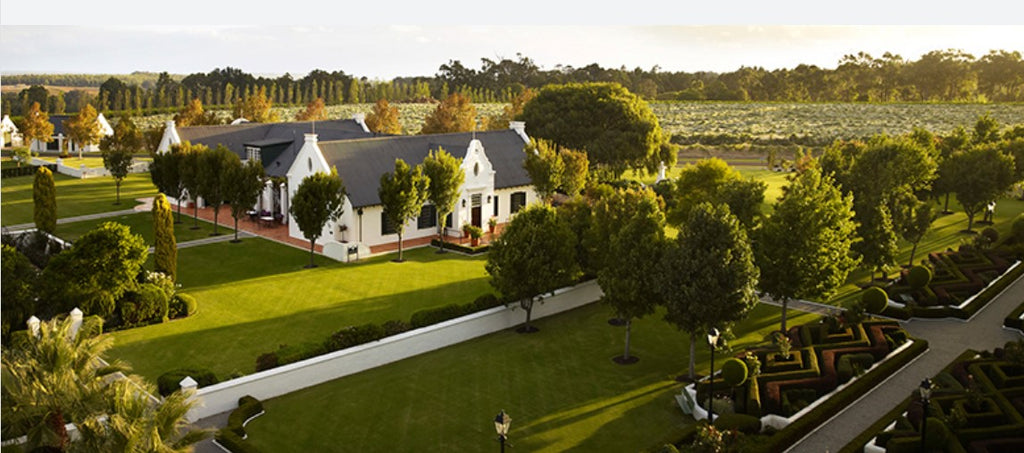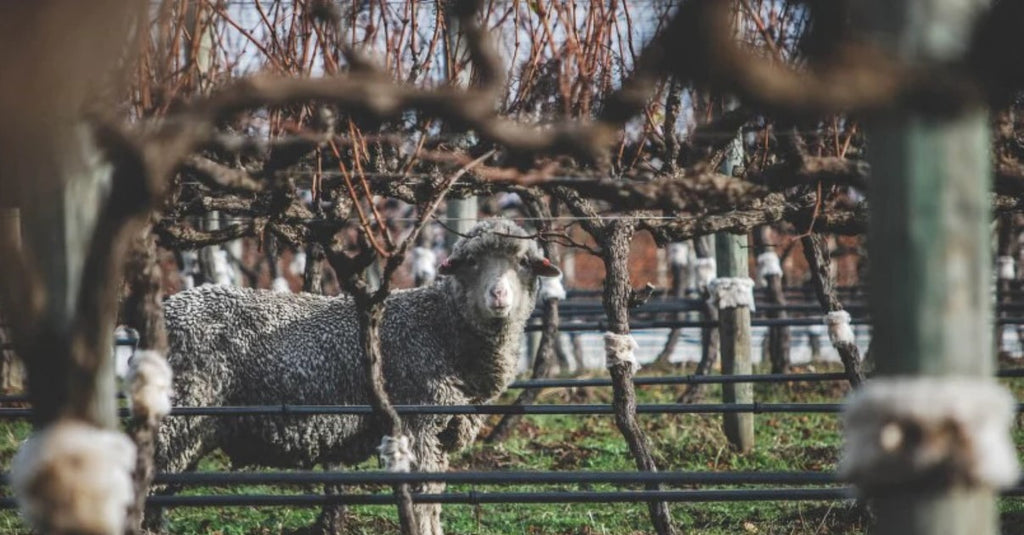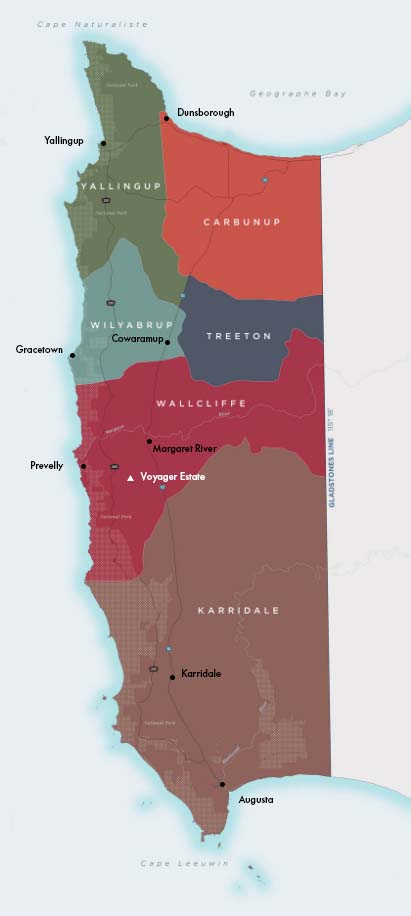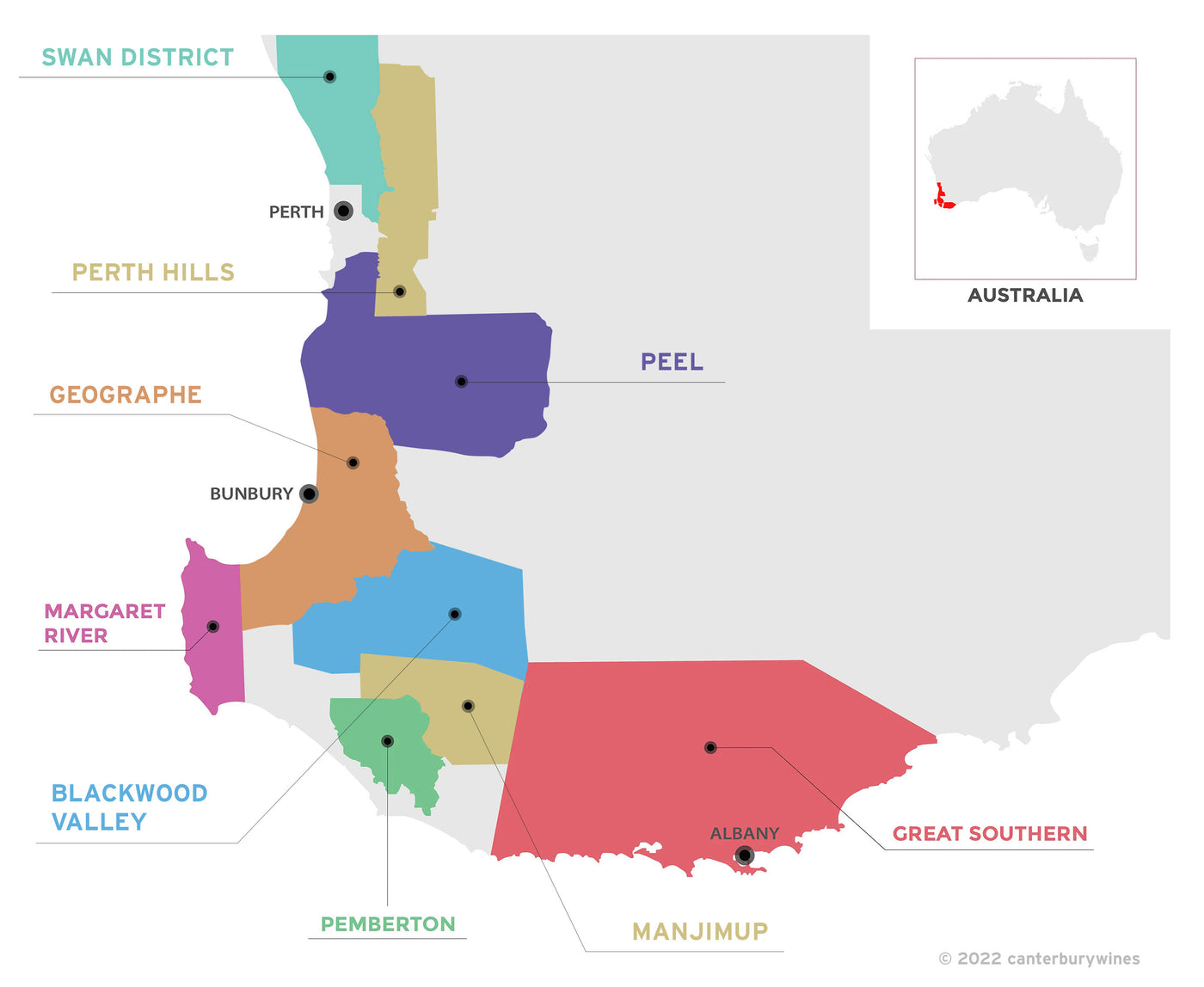

Voyager Estate Cabernet Sauvignon Merlot 2003
Style: Red Wine
Closure: Cork
Voyager Estate Cabernet Sauvignon Merlot 2003
Warehouse
34 Redland Drive
Vermont VIC 3133
Australia
Critic Score: 96
Alcohol: 14.0%
Size: 750 ml
Drink by: 2025
Voyager Estate is one of Margaret River's oldest vineyards, located In the Stevens Valley in the subregion of Wallcliffe. The vineyard was first planted in 1978 and subsequently purchased by mining heir Michael Wright in 1991. It is part of what James Halliday refers to as the 'golden triangle' of Margaret River - encompassing Voyager Estate, Leeuwin Estate and Cape Mentelle. This impeccably run Estate crafts a set of wines that ooze style and class.
"Now this is a lovely cabernet. It's balanced and fine, blisteringly varietal and yet ready to be chugged into too. Tobacco, chocolate, blackcurrant, pencils, dust, gravel - it's a picture of Margaret River cabernet, at its balanced best. It's adorable." Campbell Mattinson
"Inky blood plum, garnet hues; lovely aromatics consisting of blackberries, cassis, blood plums, dark chocolate and cedary oak; intense fruit flavours in the dark berry spectrum with a touch of the savoury Cabernet Sauvignon leaf character. This wine has the best tannin structure of any Cabernet blend made at Voyager Estate to date.
All varieties were harvested during late March and April. All components were fermented in open or upright fermenters, with regular pump overs or plunging. Fermentation is conducted with small amounts of the 796 Bordeaux yeast strain at temperatures kept below 30 degrees. Ferments last as long as 14 days, before either being pressed or allowed to stay on skins for further texture and tannin modification. All wine is inoculated for malolactic fermentation in tank and is then transferred to barrel. The wood we use at Voyager Estate is 100% French oak, tight grain central forest and, by using 50% new and 50% two-year-old wood, we achieve the balance we are looking for. The wine spends 24 months in barrel with regular topping and racking." Voyager Estate
Expert reviews
"A deeper hue with more ruby colour than the same wine sealed with cork, this is a classy, seamless Margaret River cabernet of immense potential. Scented with a heady, smoky and slightly meaty and perfume of dark plums, cherries and cassis, it's backed by nuances of forest floor, mocha and spearmint with undertones of pencil shavings oak. Long and sumptuous, it's vibrant, deeply fruited and finely crafted, presenting a rare marriage of impact and structure with elegance and balance. Drink 2015-2023." Jeremy Oliver - 96 points
"As much as I do like Coonawarra and Yarra cabernet I still like Margaret River the best and Voyager Estate is one of the best of the best. We bought plenty of the 98, 99 and 01 vintages but seem to have missed 00 and 02. Won't be missing out on this vintage though. Half a dozen will be going straight to the pool room. A great smelling wine offering up blackcurrant, cherry, dark chocolate, tobacco and pencilly oak. Classic cabernet. On the palate medium to full bodied with firm ripe long grained tannins. The tannins are particularly good and sit beautifully within the wine. It has rich blackcurrant and cherry fruit balanced with more earthy tobacco, dark chocolate and cedar flavours and blah blah blah… at this point I stopped analysing and starting drinking because all you really need to know is that this is a top shelf Margaret River cabernet. Fill your boots. Drink : 2007 – 2023." Gary Walsh, Winorama - 96 points
"Strong red-purple; medium-to full-bodied; rich, round, blackcurrant fruit; supple tannins and quality oak all seamlessly interwoven. Drink to 2025." James Halliday, Halliday Wine Companion - 95 points
"Voyager Estate is not only one of Margaret River's finest wine producers – it's right up there with the best in Australia. The 2003 Voyager Estate Cabernet Merlot is one of the best yet. The deep, bright colour is a joy to behold, and the powerful cassis nose features beautifully integrated oak. The long, firm palate is very impressive and perfectly balanced. Cellar ten years." Lester Jesberg, Winewise - Outstanding ★★★★★
"There's normally a hint of bay leaf in southern Margaret River cabernet but I don't smell it here. But there are masses of dark plumy, currant and attractive vanilla oak too. Has succulent, juicy currants in the mouth too; really mouth filling with long dry tannins – classic cabernet sauvignon tanginess. Plums and chocolate round things off. Another classy Voyager cabernet sauvignon." Tim White, Australian Financial Review – 94 (95) points
"Classic Cabernet, cherry, spice, moderate concentration, integrated oak. Well made. Balanced, midweight aromatic finish. Needs time. 4-6 years." Decanter Magazine Award Winners ★★★★★
"Now this is a lovely cabernet. It's balanced and fine, blisteringly varietal and yet ready to be chugged into too. Tobacco, chocolate, blackcurrant, pencils, dust, gravel - it's a picture of Margaret River cabernet, at its balanced best. It's adorable. Drink: 2007-2016." Campbell Mattinson, The Wine Front - 93 points
"Deep, rich intense fresh cassis, a floral aspect too, with some creamy notes yet savoury underneath, superbly balanced with the oak beautifully integrated. Builds on the palate, stunning structure and length. Somewhat closed, so the patient will be rewarded, otherwise a decent decant please." Jane Faulkner, The Age
About the winery
 Voyager Estate is one of Margaret River's oldest vineyards, located In the Stevens Valley in the subregion of Wallcliffe. It is part of what James Halliday refers to as the 'golden triangle' of Margaret River - encompassing Voyager Estate, Leeuwin Estate and Cape Mentelle.
Voyager Estate is one of Margaret River's oldest vineyards, located In the Stevens Valley in the subregion of Wallcliffe. It is part of what James Halliday refers to as the 'golden triangle' of Margaret River - encompassing Voyager Estate, Leeuwin Estate and Cape Mentelle.
The vineyard was first planted in 1978 and at the time was known as Freycinet Estate. It was purchased by mining heir Michael Wright in 1991 and renamed Voyager Estate. Michael's agricultural background and extensive knowledge of soils and climate led him to Freycinet, where the uniform gravelly soils with a stony clay base enable moisture and nutrients to be slowly released to the vines.
Michael gradually acquired adjoining properties of similar soil types over time and today the vineyard occupies over 100 hectares. The regional stars chardonnay and cabernet sauvignon take the lead, though there are another 12 varieties planted - shiraz, merlot, petit verdot, cabernet franc, malbec, tempranillo, grenache, semillon, sauvignon blanc, sauvignon gris, chenin blanc and viognier.
The highest priority at the Estate has been the transition to certified organic management. That process initially began with a block of the original cabernet sauvignon plantings which has been organically farmed since 2004. As of 2021, the winery and 90 hectares of the vineyard have been certified organic and the transition is expected to be complete by 2023.
The management process doesn't stop at organics, either, with broader issues very much on the agenda. “Climate Change is an issue of paramount importance, not only for the survival of our species, but also in the way it specifically impacts our industry. We are ultimately working towards becoming a carbon negative business. We're currently building and recording baseline soil carbon levels in the pursuit of this goal.”, says Steve James who was Head of Winemaking and Viticulture for 23 years and is now employed in a consulting role.
Michael Wright, Voyager's founder and visionary, sadly passed away in 2012, but he left a powerful legacy of an absolute commitment to quality that today pervades every corner of Voyager. The Estate remains family owned, with Michael's daughter, Alex Burt (nee Wright), matching her father's fanatical attention to detail with an environmental conscience that has opened another important chapter in the history of this Estate.

Sheep grazing through the vineyard in winter
The following extract is from an article by Paige Taylor in The Weekend Australian
As the golden end of a warm day settles over Voyager Estate, the hills of rolling vines are literally abuzz. Driving slowly past glistening rows of chenin blanc vines, busting with bright new spring buds, the sound of life is unmistakeable. Insects, hawks, eagles, ibis and native ducks fill the air with movement and sound; there's a sense that life is everywhere. "These vines are singing," says Voyager Estate vineyard manager Glen Ryan, looking out over the property, which shares its footprint with native karri, blackbutt and marri trees.
Voyager Estate wasn't always so lively. For decades, the Margaret River vineyard was like so many of its neighbours: a neat, quiet monoculture. Sprayed regularly to ward off pests and weeds, incidental life - chirping insects and squawking birds, in particular found it hard to flourish here.
Then Ryan and his team set about making a profound change.
With the blessing of proprietor Alexandra Burt, Ryan started taking Voyager wholly organic, removing chemicals from the farm and instituting a natural regimen for the soil and the vines. The result has been one of the most dramatic transformations of a large-scale winery in Australia, with Voyager due to be certified organic in January after more than a decade of incremental change. The 110ha property, 280km south of Perth, has been producing its signature wines without pesticides for years, but the bureaucracy of the certification process moves at a slower pace.
As a business proposal, going organic was not an obvious move for a winery that was already commercially successful and producing great wine. Yields are now 30 per cent lower than they were in pre-organic days. The cost of producing the grapes is higher, too. But "it's such a beautiful way to farm", says Ryan, who adds that the property is now on the way to becoming carbon neutral. The use of renewable energy, carbon offsets, waste reduction and comprehensive recycling, land rehabilitation and revegetation activities are all now part of Voyager's focus.


Western Australia
Western Australia is home to more than 400 wineries across nine vast and extraordinary wine regions which are almost entirely concentrated in the south-west and great southern land divisions of the State. The regions are Blackwood Valley, Geographe, Great Southern, Peel, Pemberton, Manjimup, Margaret River and Swan District.
The oldest region is the Swan Valley, the best known both nationally and internationally is Margaret River and the largest is Great Southern. The Great Southern region is further divided into the five subregions of Albany, Denmark, Frankland River, Mount Barker and Porongurup.
The history of wine production in Western Australia dates back to 1840 with the establishment of Sandalford in the Swan Valley region. The recognition of the fine wine possibilities started to be realised after the establishment of the Margaret River Region in 1967, which has become renowned for its high quality Chardonnay and Cabernet Sauvignon. The other regions produce a diverse range of regionally distinct wines, from stunning Rieslings and evocative Shiraz, to a range of unique Cabernet Sauvignon blends.

